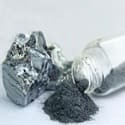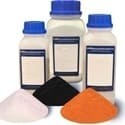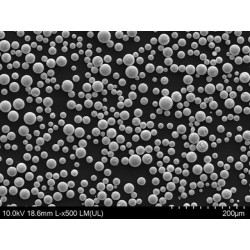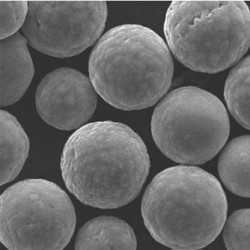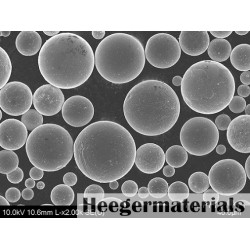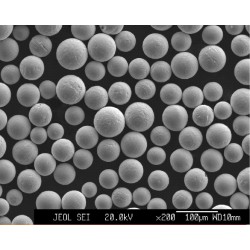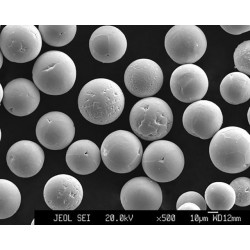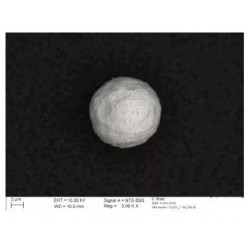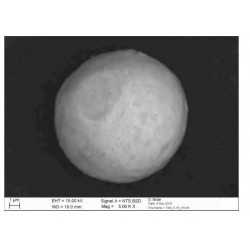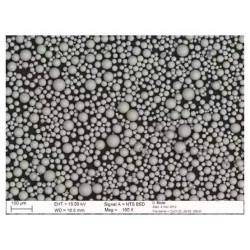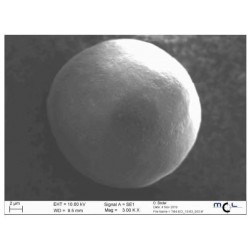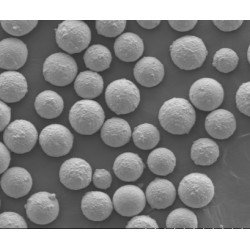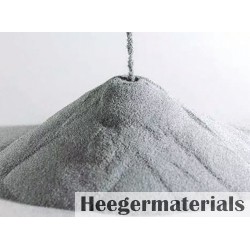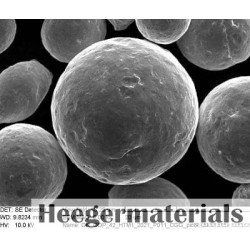Thermal Spraying
- Products
- Deposition Materials
- Refractory Metals
- Rare Earth Materials
- Powder
- Technical Ceramics
- Lanthanum Hexaboride (LaB6) Materials
- Pyrolytic Boron Nitride (PBN) Products
- Boron Nitride (BN) Products
- Alumina Ceramics (Al2O3)
- Aluminum Nitride (AlN) Products
- Silicon NItride (Si3N4) Ceramics
- Silicon Carbide (SiC) Ceramics
- Graphite Products
- Zirconia Ceramic
- MAX Phase Ceramic Materials
- Boron Carbide Ceramics (B4C)
- Magnesium Oxide Ceramics (MgO)
- Quartz Ceramics
- Macor Machinable Glass Ceramic
- Beryllium Oxide (BeO) Ceramics
- Piezoelectric Ceramics
- High Purity Materials
- Precious Metals
- Chemicals
- Crystals & Substrates
- Applications
- Other
Thermal spraying refers to heating and melting the coating material, atomizing it into extremely fine particles with high-speed airflow, and spraying it onto the surface of the workpiece at a high speed to form a coating. According to different coating materials, one or several properties of wear resistance, corrosion resistance, oxidation resistance, and heat resistance can be obtained.
Thermal spraying refers to heating and melting the coating material, atomizing it into extremely fine particles with high-speed airflow, and spraying it onto the surface of the workpiece at a high speed to form a coating. According to different coating materials, one or several properties of wear resistance, corrosion resistance, oxidation resistance, and heat resistance can be obtained.
Thermal Spraying There are 67 products.
Subcategories
Pure Metal & Alloy...
Pure Metal & Alloy Thermal Spray Powders deliver high-performance coatings for wear resistance, corrosion protection, and thermal insulation. Idea for aerospace, automotive, and energy industries, these powders offer excellent adhesion and customizable particle sizes for flame, plasma, and HVOF spraying.
Ceramic Thermal Spray...
Ceramic Thermal Spray Powder is an advanced material used in thermal spraying processes. These powders are typically made from oxide ceramic materials such as alumina, zirconia, titanium oxide, chromium oxide, yttrium oxide, etc. They are offering excellent wear resistance, corrosion resistance, and thermal insulation properties.
Spherical Tungsten (W) Powder
Spherical Tungsten(W) Powder exhibits excellent high-temperature resistance and ray shielding properties, making it widely used in the defense industry, medical equipment, and other fields. Heeger Materials offers top-quality Spherical Tungsten (W) Powder at competitive prices, with customized options for purity and particle size to meet specific...
Spherical Aluminum Alloy Powder Series
Aluminum alloy density is low, but the strength is relatively high, close to or more than high-quality steel, with good plasticity, and can be processed into a variety of profiles.
Spherical Nickel (Ni) Powder
Spherical Nickel (Ni) powder and ultra-fine nickel powder are processed by the atomization method, which is a kind of high-purity metal powder with good sphericity. The particles can be irregular and spherical. The particle distribution can reach the nanometer scale.
Spherical Cast Tungsten Carbide Powder |...
Spherical Cast Tungsten Carbide (WC) Powder boasts uniform, dense, dendritic microstructure, with stable chemical properties, excellent processing, high microhardness, and superior wear resistance, ideal for 3D printing. Heeger Materials can provide top-quality Spherical Cast Tungsten Carbide (WC) Powder at competitive prices, with customized options to...
Spherical Molybdenum (Mo) Powder
Spherical Molybdenum (Mo) Powder has a high level of sphericity and controlled grain size which make it the ideal powder for surface coating. Heeger Materials can provide top-quality Spherical Molybdenum Powder at competitive prices, allowing customization of purity levels and particle sizes to meet specific requirements.
Spherical Copper Alloy Powder
Copper alloy powders (bronze powder and brass powder) of tin, zinc, lead, and other elements were prepared by the atomization method. They have the physical and mechanical properties of casting or forging. Enhance the mechanical properties and control dimensional changes during the sintering process, except through mixing or infiltration.
Stainless Steel 316L Spherical Powder
Austenitic chromium-nickel-molybdenum steel with a low carbon content (<0.030%), has good resistance to chloric media and non-oxidizing acids.
CuNi2SiCr Spherical Copper Alloy Powder
CuNi2SiCr Spherical Copper Alloy Powder has got even higher strength and hardness than CuCr1Zr at a slightly lower thermal and electrical conductivity. HM provides high-quality Spherical Copper Alloy Powders at a competitive price.
Titanium Alloy Ti6Al4V-ELI Spherical...
For the Titanium Alloy Powder, “ELI” stands for “extra-low interstitials” - lower oxygen and nitrogen content than Grade 5, used for medical and aerospace applications.
Spherical Nickel-coated Tungsten Carbide...
Spherical Nickel-coated Tungsten Carbide (Ni-WC) Powder, prepared by RF plasmasphere compound technology, boasts high spherical, good liquidity, high purity, loose density, particle internal density, and no hollow powder. Heeger Materials offers top-quality Spherical Nickel-coated Tungsten Carbide Powder at competitive prices, with customized options for...
Spherical Stainless Steel Alloy Powder
Spherical Stainless Steel Alloy Powder is mainly used in aerospace fittings, automobile manufacturing, and other fields. Heeger Materials supplies various Spherical stainless steel alloy powders with high quality and at a competitive price.
Spherical Molybdenum Disilicide (MoSi2)...
Spherical Molybdenum Disilicide (MoSi2) Powder for thermal spraying is a high-silicon intermetallic compound that displays metal and ceramic properties, making it ideal for high-temperature structural ceramics. Heeger Materials can provide the best Spherical MoSi2 Powder with a purity of 99.9%. The particle size can be tailored according to specific...
Thermal Spraying Technology Overview
Definition of Thermal Spraying
Thermal spraying is a surface strengthening technology that uses a heat source (such as electric arc, plasma spraying or combustion flame, etc.) to heat powder or filamentary metal or non-metallic materials to a molten or semi-molten state, and then spray it to the substrate at a certain speed. A technique for depositing a surface coating with various functions.
Applications of Thermal Spraying
Thermal spraying is widely used in industries such as aerospace, automotive, energy, marine, and oil & gas. For example, in aerospace, thermal spray coatings are applied to turbine blades and engine components to improve heat resistance and corrosion resistance. Thermal spraying is used for engine parts and brake systems in automotive applications. According to market research, the global thermal spray market is projected to reach approximately $4.3 billion by 2026, growing at a CAGR of about 6%.
Advantages of Thermal Spraying
Thermal spraying significantly extends the lifespan of equipment and reduces maintenance costs. Coatings can be tailored to provide wear resistance, corrosion resistance, oxidation resistance, and high-temperature tolerance. Additionally, thermal spraying can be applied to complex-shaped components without altering the base material structure, making it highly versatile and cost-effective.
Thermal spray process abbreviation
- CP: flame spray
- SF: Spray welding (spray + remelting)
- HV: Hypersonic flame spraying, HV-1 HVAF, HV-2 kerosene hypersonic spraying, HV-3 gas fuel hypersonic spraying
- AP: Atmospheric Plasma Spray
- VP: Vacuum Plasma Spray
- AC: Low-pressure plasma spray
- PT: Plasma Transferred Arc Welding
- LC: Laser Cladding
- CS: Cold Spray


